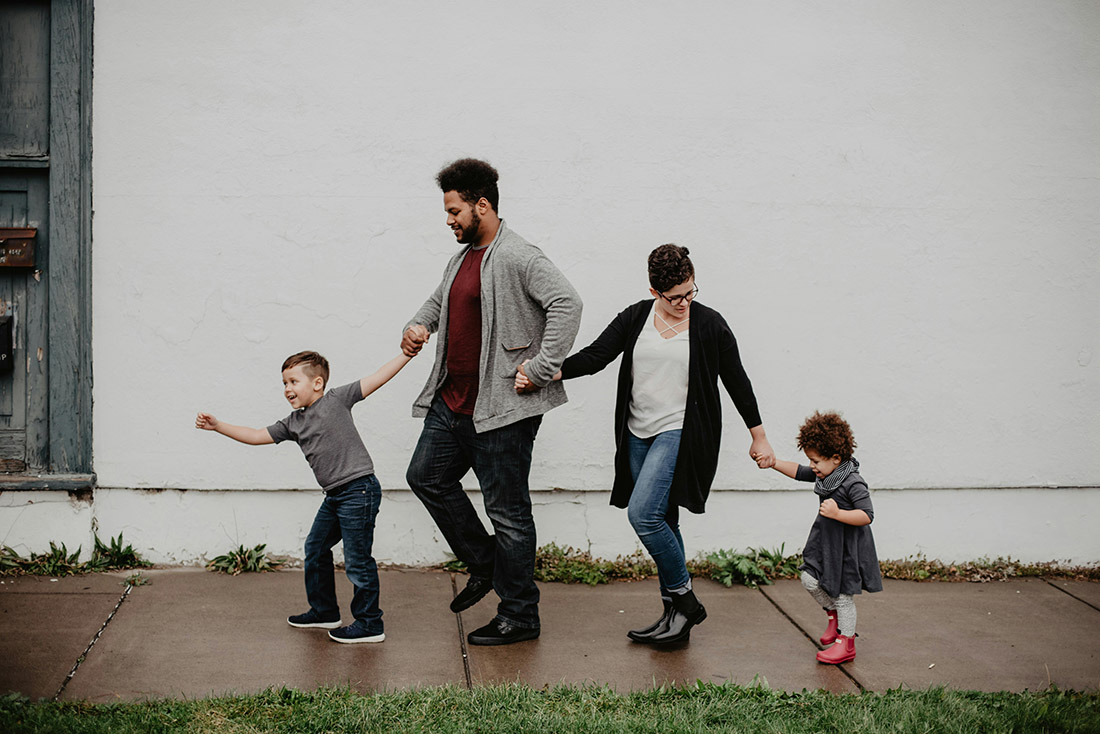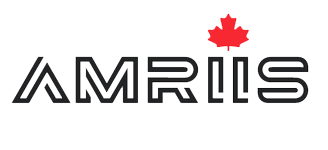The spousal, common-law partner, or conjugal partner sponsorship program offers a Canadian citizen or permanent resident the opportunity to bring their partner to Canada and settle them permanently. Aware of the importance of family unity, Canadian authorities give top priority to spousal sponsorship applications.
Sponsoring Your Spouse, Common-law Partner, or Conjugal Partner in Canada

Overview of Spousal Sponsorship
Inland Sponsorship Category (Within Canada)
Family Class Sponsorship Category (Outside Canada)
How long does it take to sponsor a spouse, conjugal partner, or common-law partner in Canada?
How much does it cost to sponsor your spouse, conjugal partner, or common-law partner in Canada?
What is common-law partner sponsorship?
What is conjugal partner sponsorship?
Do I need a job to sponsor my spouse, conjugal partner, or common-law partner in Canada?
Eligibility Conditions for My Spouse, Common-Law Partner, or Conjugal Partner
Spousal, Common-Law Partner, or Conjugal Partner Sponsorship Application
How do I submit a spousal, common-law partner, or conjugal partner sponsorship application?
Can I leave Canada while my spousal sponsorship application is being processed?
What documents do I need to submit a spousal sponsorship application?
Is an interview required for spousal sponsorship?
Reasons why a spousal sponsorship application may be refused?
Can I reapply if my spousal sponsorship application is refused?
Can I cancel my spousal or conjugal partner sponsorship application?
FAQ
Is there a limit to the number of spousal sponsorship applications accepted by Canada?
Do I get permanent residency if I marry a Canadian?
Can my spouse, common-law partner, or conjugal partner come to Canada while waiting for approval?
Can I sponsor my conjugal or common-law partner if I am legally married to someone else?
Can I sponsor my common-law partner if we do not live together?
Here’s everything you need to know about sponsoring your spouse, common-law partner, or conjugal partner in Canada.
Who can sponsor their spouse, conjugal partner, or common-law partner under the spousal sponsorship program?
Sponsorship Category in Canada (Inland)
You must submit an application under the Spouse or Common-law Partner in Canada class (Inland application) if:
- You are living with the sponsor in Canada.
- You have valid immigration status in Canada.
- You want to apply for an open work permit to work in Canada while your application is being processed.
If your spouse or common-law partner does not have status in Canada, they can also apply under this category and benefit from a public policy that allows them to remain in Canada until the process is completed. However, the disadvantage of this stream is that the applicant should avoid traveling outside of Canada during the process.
Family Reunification Category (Outside)
You should submit a sponsorship application in the family reunification category (outside Canada) in the following cases:
Your spouse or common-law partner (the applicant) resides outside Canada.
You currently live in Canada with the sponsor, but you do not intend to stay in Canada for the entire duration of the application processing.
The downside of this procedure is that it can be difficult to live with your partner until the application is approved. However, your partner can apply for a temporary visa to come to Canada while their sponsorship application abroad is being processed.
How long does it take to sponsor your spouse, common-law partner, or conjugal partner in Canada?
The processing of sponsorship applications typically takes about 12 months from start to finish. Generally, applications are not processed much faster than this timeframe. However, the process may exceed 12 months depending on the complexity of your case.
If your case is complex or if the visa office requests additional evidence of your relationship, the processing of your application may be delayed.
To ensure that your sponsorship application is processed as quickly as possible, it is crucial that it is submitted correctly from the outset. The consultants and legal professionals at AMRIIS have assisted thousands of individuals in submitting their sponsorship applications. Discover how AMRIIS can help you bring your loved ones to Canada by completing our free online assessment.
How much does it cost to sponsor your spouse, common-law partner, or conjugal partner in Canada?
The processing fees to sponsor your spouse, common-law partner, or conjugal partner in Canada are as follows. If your spouse, common-law partner, or conjugal partner has dependent children, an additional fee of $150 will be required for each child included in the application.
- Sponsorship fee: $75
- Principal applicant processing fee: $475
- Permanent residence right fee: $500
- Biometrics fee: $85
Total: $1135
If the sponsor resides in Quebec or plans to live there after the grant of permanent residence, an additional fee of $289 will be payable in addition to the fees mentioned above.
What is common-law partner sponsorship?
According to Canadian immigration law, common-law unions are recognized as conventional marriages. For your relationship to be eligible for sponsorship as a common-law partnership, you must demonstrate that you have cohabited for at least one year in a relationship similar to marriage.
What is the sponsorship of a conjugal partner?
In certain circumstances where you cannot marry or live with your partner as common-law partners, you may be eligible to sponsor a conjugal partner. To sponsor a conjugal partner, you must have been in a conjugal relationship for at least one year but have been unable to live together or marry for reasons beyond your control.
What are my ongoing obligations if I sponsor my spouse, common-law partner, or conjugal partner under a sponsorship?
When you sponsor a spouse, common-law partner, or conjugal partner, you must guarantee their financial support, covering their essential needs, including daily expenses and healthcare costs, for a period of three years.
Before signing the commitment agreement, ensure that the person you are sponsoring does not require government social assistance. If your spouse, common-law partner, or conjugal partner receives financial assistance while you are legally responsible, you will have to repay the full amount received. As long as you have not repaid the total amount, you will not be able to sponsor another eligible family member.
Your financial obligation remains in effect even if:
- Your spouse, common-law partner, or conjugal partner becomes a Canadian citizen.
- Your relationship ends.
- Your spouse, common-law partner, or conjugal partner moves to another country or province.
- You face financial difficulties.
Do I need to have a job to sponsor my spouse, common-law partner, or conjugal partner in Canada?
You do not need to have a job to sponsor your spouse, common-law partner, or conjugal partner to come to Canada. Unlike other sponsorship programs, there is no minimum income requirement for sponsoring a spouse. However, since you must sign a commitment agreement to guarantee your partner’s basic financial support, the immigration officer may assess whether you have the necessary funds for the sponsorship. Therefore, it is important to provide evidence of your means to support your spouse, common-law partner, or conjugal partner in Canada.
How much money do you need to sponsor your spouse, common-law partner, or conjugal partner in Canada?
Unlike most other forms of sponsorship in Canada, there is no need to demonstrate a minimum income to sponsor a spouse, common-law partner, or conjugal partner. However, you must sign a commitment in which you promise to provide for the essential needs of the sponsored family member.
The duration of this commitment varies depending on the sponsorship category. For the sponsorship of a spouse, including spouses, common-law partners, or conjugal partners, the commitment is for three years from the time the sponsored person obtains permanent residence in Canada.
Does my spouse, common-law partner, or conjugal partner need to have a job offer to be sponsored under the spouse sponsorship program?
Your sponsored spouse, common-law partner, or conjugal partner does not need a job offer in Canada to be eligible for the sponsorship program.
Does my spouse, common-law partner, or conjugal partner need to prove their proficiency in English or French
Your sponsored spouse, common-law partner, or conjugal partner is not required to prove their proficiency in English or French.
However, they will likely need to take a language proficiency test if they decide to apply for Canadian citizenship in the future.
My spouse, common-law partner, or conjugal partner has a serious illness; can I still sponsor them?
As long as your partner’s health condition does not pose a risk to public health or safety, their sponsorship application should not encounter any issues.
There are three types of medical inadmissibility: excessive burden on social or health services, danger to public health, and danger to public safety. The inadmissibility due to excessive burden does not apply to sponsored spouses or common-law partners.
How to apply for sponsorship of a spouse, common-law partner, or conjugal partner?
Sponsorship applications for a spouse, common-law partner, or conjugal partner can be submitted either by mail or through the IRCC permanent residence application portal.
Can I leave Canada while my spouse sponsorship application is being processed?
The sponsored person can leave Canada for short periods while waiting for a decision on their sponsorship application. However, since it is required to reside in Canada for this sponsorship category, leaving the country can be risky, as it may be difficult to return. This issue has become more concerning since the COVID-19 pandemic and frequent travel restrictions.
It is also important to note that if the sponsored spouse has applied for an open work permit and currently holds maintained status in Canada, they will lose that status upon leaving the country and will have to wait for their work permit application to be reapproved in order to return.
As a permanent resident, you must remain in Canada during the processing of your spouse’s sponsorship application.
What documents do I need to apply for the sponsorship of a spouse, common-law partner, or conjugal partner?
When applying for the sponsorship of a spouse, you will need to provide the following documents:
- Completed application forms.
- Proof of your status in Canada.
- Identity documents.
- Marriage certificate.
- Police certificates and clearances from all countries where your spouse has lived for six months or more after the age of 18.
- Medical certificate for your spouse.
- Proof of payment of applicable government fees.
- A digital photo.
- Relationship information and sponsorship assessment questionnaire.
- Marriage certificate (or documents related to cohabitation if you are not married).
- Invitations and wedding photos.
- Birth or adoption certificates for any children you and your spouse have together.
- Proof of marriage registration with a government authority.
To demonstrate your relationship, you must provide at least two of the following:
- Evidence that you and your spouse own property together.
- Joint bank accounts.
- Utility bills in both your names.
- Copies of government-issued identification.
- Car insurance.
- Pay stubs or tax returns showing that you live at the same address.
If you live in a common-law relationship and wish to sponsor your partner, immigration officers will expect to see the following evidence:
- Relationship information and sponsorship assessment questionnaire.
- Birth or adoption certificates for any children you and your partner have together.
- Photos showing that you are in a conjugal relationship.
- Proof that you have lived together for at least one year.
Additionally, provide at least two of the following documents:
- Documents indicating that you are recognized as common-law partners, such as employment or insurance benefits.
- Evidence of financial support or shared expenses.
- Evidence that your relationship is recognized by your family and friends (letters, emails, social media).
If you cannot provide all the listed documents, be creative and look for other ways to demonstrate your relationship. Provide letters of explanation or sworn statements from family members or friends who can attest to your common-law status. The final decision regarding the documents will be at the discretion of the visa officer, but providing more evidence will increase your chances of success.
For conjugal relationships, immigration officers will look for:
- Common residence.
- Economic support, including joint financial arrangements and shared bank accounts.
- Proof that your relationship is recognized by your friends and family.
Whether for a conjugal relationship or a common-law union, there is no legal document or specific moment that validates your commitment. Immigration officers expect evidence of significant emotional and interpersonal ties that show you have a serious and committed relationship, with the intention to pursue it in the long term.
Can my spouse, common-law partner, or conjugal partner include family members in their sponsorship application?
Your spouse, common-law partner, or conjugal partner can include any dependent children in their permanent residence application.
Is an interview necessary for the sponsorship of a spouse?
Immigration interviews for spousal sponsorship applications are rare and constitute an exception rather than a rule. However, these interviews may be requested in cases of insufficient supporting documents for the relationship, contradictory information between the forms and the documents provided, significant age or religious differences, marriages that occurred shortly after meeting, or if cohabitation is minimal or non-existent.
While the decision to schedule an interview is at the discretion of the visa officer, hiring an immigration lawyer can help you prepare your application optimally and reduce the risks of questioning the validity of your relationship.
Reasons why a sponsorship application is denied.
To qualify for spousal sponsorship, you must demonstrate that your relationship is genuine. Immigration officers evaluate various elements to establish the legitimacy of your relationship.
They consider a range of factors, such as wedding photos showing family members, as well as elements specific to the cultural practices of your region. If your relationship differs from conventional norms, it is advisable to provide additional evidence of its authenticity. Letters of explanation can also help the visa officer understand the particularities of your relationship if it does not match the usual indicators of a traditional marriage in your culture.
Note that online wedding ceremonies are not recognized for Canadian immigration procedures.
Can I submit a new application if my spousal sponsorship application is denied?
If your spousal sponsorship application is denied, you can submit a new application. It is crucial to specify the reason for the denial in your new application and to provide additional information or documents that address the concerns raised.
Can I cancel my spousal or partner sponsorship application?
You can withdraw your sponsorship application at any time before the person you are sponsoring becomes a permanent resident of Canada.
Is there a limit on the number of spousal sponsorship applications accepted by Canada annually?
Unlike the sponsorship of parents and grandparents, there is no annual limit for spousal sponsorship. Canada accepts spousal sponsorship applications throughout the year.
Do I obtain permanent residency if I marry a Canadian?
Marrying a Canadian does not automatically grant permanent residency in Canada. After marriage or recognition of a common-law partnership, it is necessary to submit a spousal sponsorship application. Only after this application is approved will the spouse become a Canadian permanent resident.
Can my spouse, common-law partner, or conjugal partner come to Canada while waiting for approval?
Your spouse or partner can come to Canada while you wait for the sponsorship application approval, but there is no specific visa for applicants awaiting a decision. Some applicants may face difficulties obtaining a temporary visa if a permanent residency application is already in progress.
Temporary resident visa applicants must convince the visa officer that they will leave Canada at the end of the visa’s validity. Having a pending permanent residency application may raise doubts about their intention to leave the country at the end of the visa.
In this context, it may be wise to apply for a temporary visa and, once in Canada, submit an inland sponsorship application. This way, the sponsored spouse can transition from their temporary status to an open work permit, allowing them to work for any employer while their application is being processed.
Can I sponsor my conjugal partner or common-law partner if I am legally married to someone else?
If you wish to sponsor your common-law partner while you are still legally married to someone else, you must demonstrate that your marriage has been dissolved and that you have lived apart from your legal spouse for at least one year. The period of separation from your legal spouse cannot be counted as part of the cohabitation period with the common-law partner you wish to sponsor. To prove the end of your marital relationship, you must provide additional documents such as:
- An official statement attesting to the end of the marriage and the beginning of the common-law relationship,
- An official separation agreement,
- A court order regarding child custody,
- Documents showing that the legally married spouse has been removed from insurance policies or wills.
Can I sponsor my common-law partner if we do not live together?
A common-law couple may find themselves separated due to exceptional circumstances such as a family emergency, difficult conditions in a country, or reasons related to employment or education. To sponsor your common-law partner, you must have lived with your partner for at least 12 consecutive months in a marriage-like relationship. If you are not currently living with your partner at the time of the application, you must provide sufficient evidence showing that you have lived together in the past and that you plan to reunite in Canada after the sponsorship. It is also essential to demonstrate that, despite the physical separation, you have continued to maintain your common-law relationship.

Ready to get started?
Explore your immigration options to Canada! Complete our free assessment today, and a member of the Amriis team will contact you to discuss the possibilities available to you.



